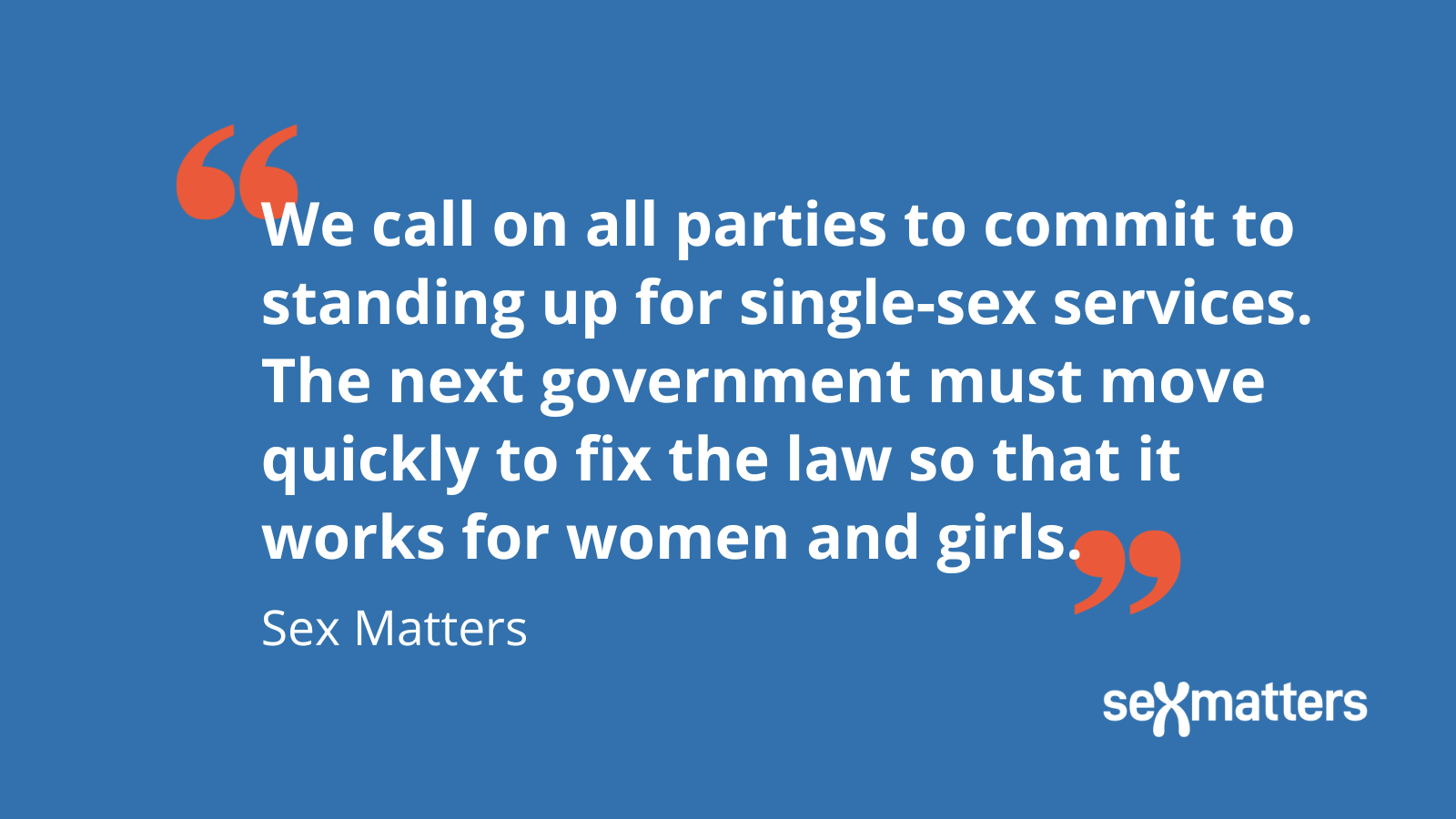It’s time to make the Equality Act clear

For the past 18 months Sex Matters has been calling for the government to make a simple one-line amendment to clarify that “sex” in the Equality Act really does mean biology, and not self-identification or paperwork.
The Conservatives’ announcement today that they would do this if elected is hugely welcome.
It is way past time for this simple, sensible measure, which would give clarity to providers of single-sex services, spaces and sports.
We call on all parties to commit to standing up for single-sex services. The next government must move quickly to fix the law so that it works for women and girls.
Polling shows that most people support genuinely single-sex provision, and fixing the Equality Act also features in Mumsnet’s election manifesto – in essence, the nation’s biggest doorstep.
Research by Sex Matters, published in January, shows how ambiguity in the Equality Act has been exploited by the gender-identity lobby to force specialist women’s services such as rape-crisis centres to admit men who identify as women.
Last year our petition to make the Equality Act clear reached 110K signatures and was debated in Westminster Hall on 12th June 2023 – the first time parliamentarians seriously discussed the way blurring the legal definition of sex harms everyone, but especially women and children.
What would an amendment look líke?
The Equality Act protects against sex discrimination and harassment. It needs to be clear that sex means sex: being male or female. It doesn’t mean having a piece of paper.
The most recent guidance from the Office of the Parliamentary Counsel includes wording that could be used for this amendment:
“Section 9(1) of the Gender Recognition Act 2004 is to be disregarded for the purposes of construing this Act.”
This would mean that a person’s sex for the purposes of the Equality Act is clarified as being their actual sex, regardless of whether they have a gender-recognition certificate.
People covered by the protected characteristic of “gender reassignment” would still be protected against discrimination or harassment.
